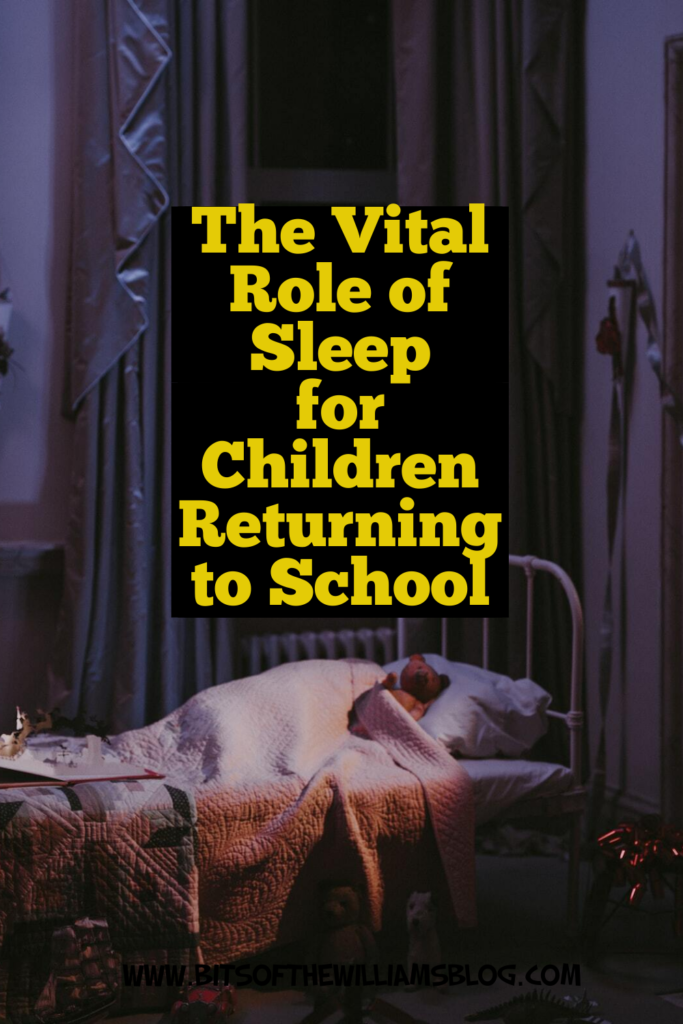This post may contain affiliate sales links.
As the school bells chime once again, signaling the start of a new academic year, parents and educators eagerly prepare their young learners for the challenges that lie ahead. Amidst the hustle and bustle of purchasing school supplies and adjusting to new routines, one crucial aspect often gets overlooked: sleep. Adequate sleep is a fundamental pillar of a child’s physical and mental development, and it plays an indispensable role in their success as they return to school. In this blog post, we will delve into the significance of sleep for children and explore how it can positively impact their academic performance and overall well-being.
-
Cognitive Function and Memory
Sleep is essential for enhancing cognitive function and memory consolidation in children. During sleep, the brain processes and stores information learned during the day, solidifying it into long-term memory. Without sufficient sleep, children may find it challenging to retain and recall crucial information, leading to decreased academic performance. A well-rested mind is more alert, focused, and receptive, enabling students to grasp new concepts more effectively and perform better in exams.
-
Mood Regulation
Have you noticed how cranky and irritable a sleep-deprived child can be? Sleep plays a vital role in regulating emotions and mood in children. Sufficient rest allows them to better cope with stress and emotional challenges, fostering a more positive and amiable attitude towards their peers and teachers. This emotional stability promotes a healthy social environment, making it easier for children to build meaningful connections and collaborate with others, both inside and outside the classroom.
-
Physical Health and Immune System
An often-overlooked aspect of sleep is its impact on physical health. Adequate sleep strengthens a child’s immune system, reducing the risk of falling prey to common illnesses like colds and flu. Regular sleep patterns also contribute to maintaining a healthy weight and metabolism, mitigating the risk of obesity and related health issues. A well-rested body is more resilient, enabling kids to stay active and participate in physical activities with enthusiasm, which, in turn, further bolsters their overall health.
-
Attention and Concentration
In the classroom setting, the ability to concentrate and sustain attention is crucial for effective learning. Sleep deprivation can lead to increased distractibility and a shorter attention span, making it difficult for children to engage fully in lessons. By prioritizing sleep, parents and educators can help students remain alert, attentive, and actively participate in class discussions, resulting in a more productive and enriching learning experience.
-
Behavioral Regulation
Sleep has a significant impact on a child’s behavioral regulation. Fatigue and sleepiness can lead to impulsive behavior, reduced self-control, and heightened irritability. In contrast, well-rested children are more likely to exhibit positive behavior, improved decision-making skills, and a greater capacity to handle conflicts constructively. This not only contributes to a peaceful classroom environment but also aids in the development of vital social and emotional skills.
-
Stress Reduction
The transition from vacation mode to the demands of school can sometimes be stressful for children. Sleep serves as a natural stress reducer, allowing kids to recharge and face challenges with a refreshed mindset. Sufficient sleep can help alleviate anxiety and improve a child’s ability to cope with academic pressures, extracurricular activities, and the daily demands of school life.
As we bid adieu to the summer break and embrace the excitement of a new school year, let us not underestimate the transformative power of sleep on children’s lives. Prioritizing adequate sleep for our young learners can significantly impact their academic performance, emotional well-being, and physical health. By cultivating healthy sleep habits from an early age, parents and educators set the stage for a successful and fulfilling educational journey for every child, ensuring they have the energy, focus, and enthusiasm to thrive in school and beyond.



